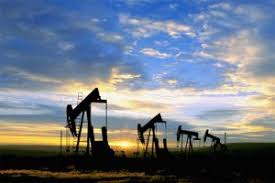Syrian caretaker Minister of Oil and Mineral Resources, Ghiath Diab, announced that the ministry will commence oil and gas exploration in newly administered areas within a month, following the completion of necessary procedures.
Speaking to CNBC Arabia on Sunday, Diab revealed that “current oil production from wells in the newly administered areas is limited to a mere 10,000 barrels per day, which is a very modest figure.” He further noted, “We produce 8 million cubic meters of gas daily from areas under our control, and we are working to increase this output.”
Diab explained that the Homs refinery is operating at 40-50% of its design capacity, while the Baniyas refinery may reach up to 60%. “Our goal is for Syria to become an oil-exporting country, not merely self-sufficient,” he added.
The minister highlighted the role of the Syrian Democratic Forces (SDF) in controlling production in their territories, stating, “The SDF are the only group with detailed knowledge of production volumes in their areas, and evidence suggests unsustainable levels of extraction.” He also pointed out that “cooperation with the SDF and their supply chain ceased with the fall of the Assad regime.”
According to Diab, “Gas supplies from the SDF previously amounted to 1.1 million cubic meters per day, but oil production—approximately 100,000 barrels daily—came to a halt on December 8.”
The Status of Oil Companies: A Legal Review
When addressing the situation of current oil companies, Diab said, “Al-Qaterji and other companies are under legal review to assess their identities and ownership structures. Sanctions have had minimal impact on oil imports, which remained readily available under the Assad regime.”
He added, “The former regime relied on imports through allies such as Iran and Russia, and it was their policies that fostered the black market, prioritizing personal gains for the ruling family.”
Future Energy Projects and Partnerships
Looking ahead, Diab expressed hope for the revival of regional energy transit routes: “We aim to activate several oil and gas pipelines passing through Syria in the near future. There are numerous proposals for partnerships with Turkey, but none have reached a serious stage of development.”
He emphasized the importance of forming global and international partnerships to modernize the sector: “Our priority is to prepare and evaluate the fields to make them attractive to international companies.”
Diab also suggested a potential opening for private-sector involvement, specifically in the importation of petroleum products. “This will not include distribution but will be accessible to international entities, commercial organizations, companies, and states,” he clarified.
This article was translated and edited by The Syrian Observer. The Syrian Observer has not verified the content of this story. Responsibility for the information and views set out in this article lies entirely with the author.


